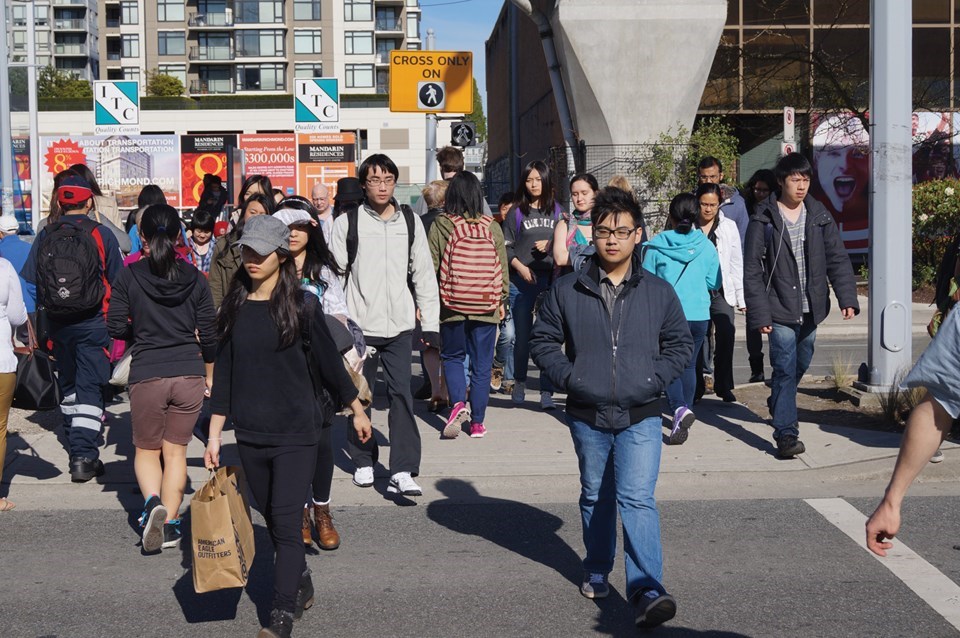B.C.’s population grew by 162,000 people between July 2022 and July 2023, despite high out-migration from B.C. to other provinces, according to the BC Check-Up: Live annual report by the Chartered Professional Accountants of BC (CPABC).
B.C. also experienced negative natural growth (i.e. births over deaths), which means all of B.C.’s population growth recently is owing to international immigration.
According to the report, B.C. had 175,024 residents arriving from other countries in 2023, a 64.8 per cent increase over 2022.
“Population growth kept accelerating in 2023, thanks to record immigration levels,” said CPABC CEO Lori Mathison. “That growth was heavily concentrated in the province’s largest cities, even more so than last year.”
The report notes that B.C.’s birth rate was negative in 2023 for only the second year ever, and for the first time in a decade, the number of people leaving B.C. for other provinces outnumbered those coming the other way.
B.C. lost 8,228 residents to interprovincial migration in 2023.
“One of the most concerning trends over the last year was the exodus of B.C. residents relocating to other parts of Canada,” Mathison said.
“We’ve historically been able to attract more than we lose. High housing costs are a major reason for that reversal. Younger people in particular are looking elsewhere to build a future.”
New housing supply did not keep up with new housing demand, the CPABC report notes, especially in larger urban centres.
In B.C.’s seven census metropolitan areas, 30,621 housing units were completed in 2023, the report notes, which was “a meagre” one per cent increase over 2022. In other words, there was one new housing unit built for every five new arrivals in B.C.
“Immigration isn’t causing the housing crisis, as we have had long-standing housing shortages in the province,” Mathison said. “The strain placed on households is evident, as is the impact the housing crisis is having on businesses and their talent pool.”
According to a member survey in April 2024, CPABC members pointed to a lack of housing affordability as the biggest obstacle to business success in the province.
“Our members have consistently identified poor housing affordability as a major obstacle to business success,” Mathison said. “To improve affordability, we need to support policies that significantly boost the housing supply, encourage investment, and increase real incomes of B.C. residents.”




